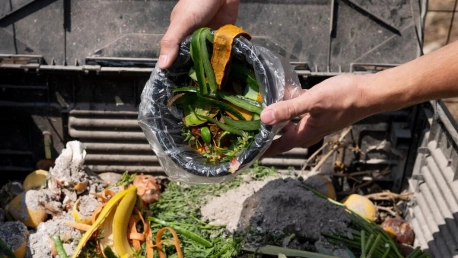Aware of their ecological impact, especially in food-related services, cruise liners are pursuing eco-friendlier methods to minimize food waste. With enormous amounts of meals served daily, these vast ships mirror urban landscapes at sea, making waste reduction imperative and complex. As food waste is both an environmental and ethical concern—especially considering the global issue of hunger—cruise companies face a pressing duty to address this. Responsible waste management on cruises is becoming a focus, as they operate on a scale that can influence change, balancing the need to satisfy thousands of travelers with a commitment to sustainability. By innovating in this area, the cruise industry can take a significant stride toward a more sustainable operation, showcasing an understanding of sustaining the earth while still providing for their passengers.
Reimagining Food Waste
Among the initiatives taken, there is a strong push to redefine food waste as “wasted food,” shifting the focus from disposal to prevention and reuse. This linguistic reframing helps highlight the missed opportunities with every disposed edible and encourages creative culinary solutions. For instance, experimenting with ‘hybrid’ dishes that combine meat with plant-based ingredients not only reduces resource-intensive meat consumption but also carves out new gastronomic territory.This approach extends to maritime menus themselves. Many cruise lines are steering toward offering a more diverse array of dining options that emphasize plant-based and meatless choices. Not only does this speak to the evolving dietary preferences, particularly of younger generations, but it also mitigates the carbon-heavy impact of traditional animal agriculture. What’s more, specialized chef training programs centered on waste management and sustainable cooking practices are increasingly being integrated by industry leaders like Royal Caribbean International.
Leveraging Technology for Waste Reduction
The fusion of AI with analytics is revolutionizing food management on cruise ships. By analyzing passenger eating trends, AI aids in predicting meal needs, which helps to adjust portions and reduce food waste. Training for food and beverage managers is crucial in bridging the gap between AI insights and their on-the-ground application. Such efforts are part of the broader sustainability goals within the cruise industry.Continuing this commitment to eco-friendliness, the cruise sector frequently gathers at conferences like F&B@Sea to share best practices and advance greener strategies. The next F&B@Sea event symbolizes the industry’s steady dedication to a sustainable future. Embracing both innovation and ecological responsibility, cruise lines are ensuring that the way they serve passengers is just as important as where they take them, with a focus on sustainable cruising that’s making significant strides.









